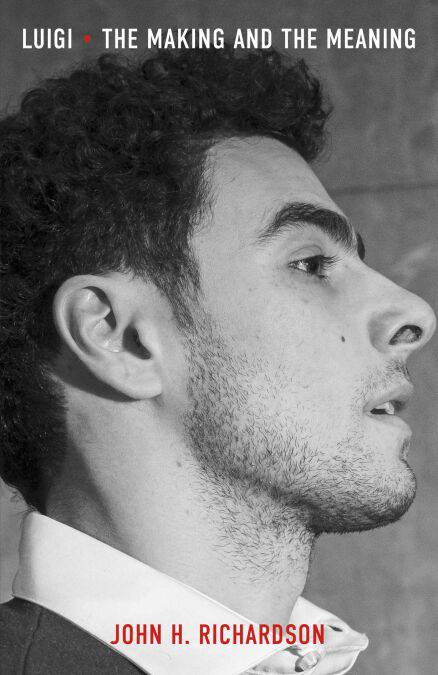
- Retrait gratuit dans votre magasin Club
- 7.000.000 titres dans notre catalogue
- Payer en toute sécurité
- Toujours un magasin près de chez vous
- Retrait gratuit dans votre magasin Club
- 7.000.0000 titres dans notre catalogue
- Payer en toute sécurité
- Toujours un magasin près de chez vous
16,76 €
+ 16 points
Format
Description
The first book to explain why the world was primed for the Luigi Mangione moment, showing the history that led him to be embraced as an avenger with an affection not seen since Jesse James or Robin Hood.
The explosion of glee and sympathy for Luigi surprised everyone, but it was everywhere. Hours after the shooting of the United Healthcare executive, his company put out a message out on Facebook saying their “hearts go out to Brian’s family and all who were close to him.” People replied with laughing emojis and comments like this one: “No one here is the judge of who deserves to live or die. That’s the job of the AI algorithm the insurance company designed to maximize profits on your health.” On TikTok, another commentator said, “Oh my god, y’all really raised the school shooter generation and now you’re asking us for sympathy?” she asks. “Welcome to a regular Tuesday at school in America.”
When he was arrested, TikTok exploded with more love for Luigi: “They could’ve been more gentle with him, he has back problems,” said one commentator. Others attempted to come to his rescue. “He is innocent, he was with me the whole time.” EBay said that while it had a policy prohibiting items that glorify violence, they were allowing the sale of items with the words “deny defend depose.” In Seattle, someone reprogrammed a couple of electric highway signs so they flashed: “One CEO down…many more to go.”
So where is all this coming from? Richardson has tracked the building blocks of this widespread alienation for three decades, finding it across not only the environmental movement but among those who reject capitalism itself, including the rules that govern everything from insurance to healthcare. He has followed the men and women who have gone to extremes to express that alienation, and studied the inspirations they found in other outlaws, most especially Ted Kaczynski (Luigi had posted a review of Kaczynski’s manifesto on Goodreads). The result is a book that will put Luigi in context and even illuminate how his appeal is likely to play out in the future.
The explosion of glee and sympathy for Luigi surprised everyone, but it was everywhere. Hours after the shooting of the United Healthcare executive, his company put out a message out on Facebook saying their “hearts go out to Brian’s family and all who were close to him.” People replied with laughing emojis and comments like this one: “No one here is the judge of who deserves to live or die. That’s the job of the AI algorithm the insurance company designed to maximize profits on your health.” On TikTok, another commentator said, “Oh my god, y’all really raised the school shooter generation and now you’re asking us for sympathy?” she asks. “Welcome to a regular Tuesday at school in America.”
When he was arrested, TikTok exploded with more love for Luigi: “They could’ve been more gentle with him, he has back problems,” said one commentator. Others attempted to come to his rescue. “He is innocent, he was with me the whole time.” EBay said that while it had a policy prohibiting items that glorify violence, they were allowing the sale of items with the words “deny defend depose.” In Seattle, someone reprogrammed a couple of electric highway signs so they flashed: “One CEO down…many more to go.”
So where is all this coming from? Richardson has tracked the building blocks of this widespread alienation for three decades, finding it across not only the environmental movement but among those who reject capitalism itself, including the rules that govern everything from insurance to healthcare. He has followed the men and women who have gone to extremes to express that alienation, and studied the inspirations they found in other outlaws, most especially Ted Kaczynski (Luigi had posted a review of Kaczynski’s manifesto on Goodreads). The result is a book that will put Luigi in context and even illuminate how his appeal is likely to play out in the future.
Spécifications
Parties prenantes
- Auteur(s) :
- Editeur:
Contenu
- Nombre de pages :
- 272
- Langue:
- Anglais
Caractéristiques
- EAN:
- 9781668209363
- Date de parution :
- 03-11-25
- Format:
- Ebook
- Protection digitale:
- Adobe DRM
- Format numérique:
- ePub

Les avis
Nous publions uniquement les avis qui respectent les conditions requises. Consultez nos conditions pour les avis.






